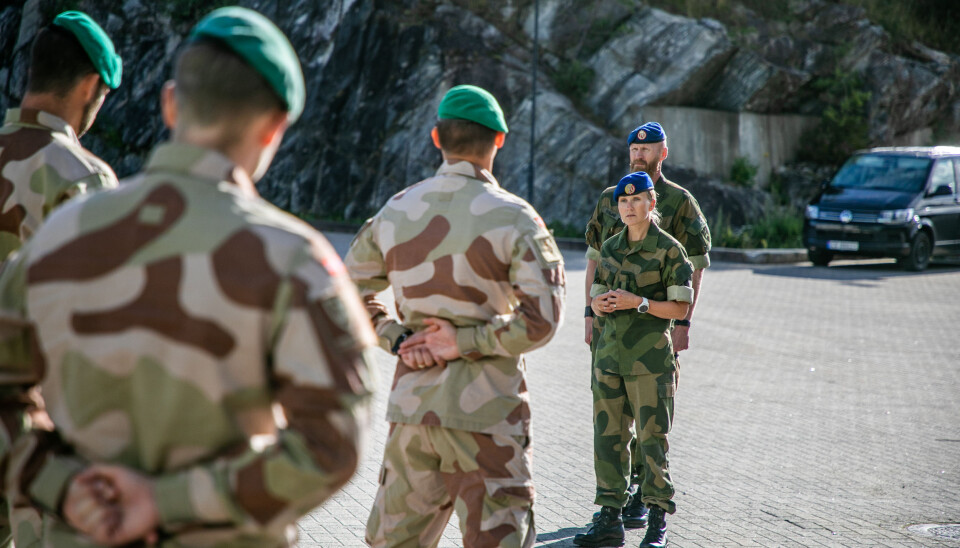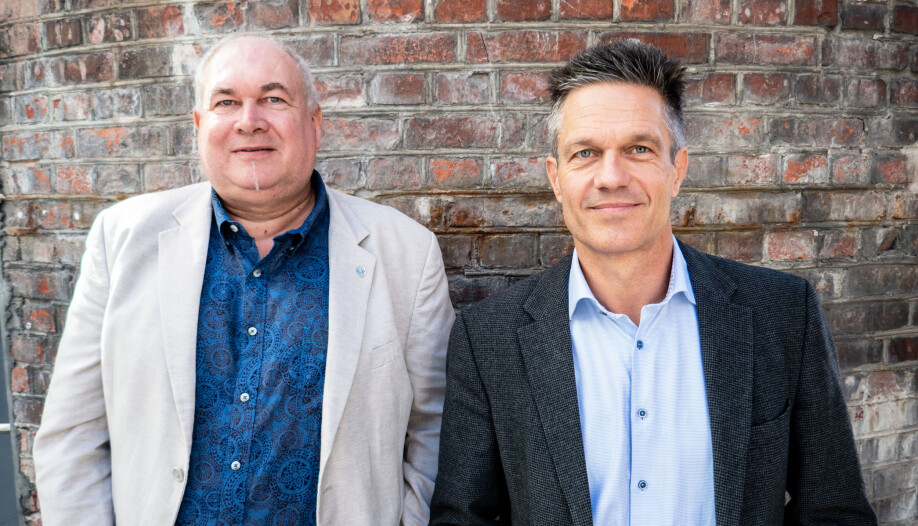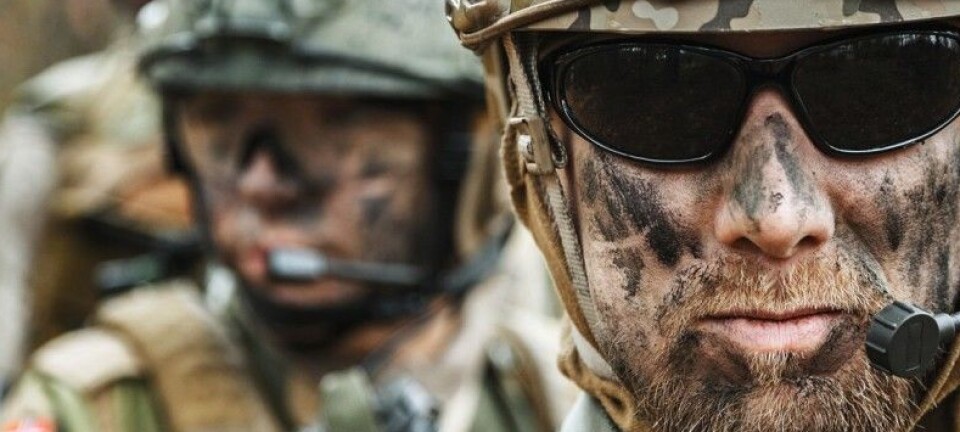This article was produced and financed by the University of South-Eastern Norway - read more

Military expertise is being shared to help people cope with the COVID-19 pandemic
Wars and pandemics are in some ways quite similar, according to researchers. They are now therefore sharing techniques based on knowledge that has previously been reserved for the Armed Forces.
The researchers have studied how military psychology and education can help us deal with the aftermath of Covid-19.
Ever since the American civil war, military psychology has dealt with how the human mind reacts to life and death situations.
“Wars and pandemics are in some ways quite similar. We don’t know how long they will last or where the enemy is, and we feel both insecure and afraid. These are common issues in military psychology,” explains professor Ole Boe at the University of South-Eastern Norway (USN).
He is the Norwegian editor of two books about military psychology and how a society can deal with life after a pandemic.
In Military Psychology Response to Post Pandemic Reconstruction volume 1 and 2, 47 researchers write about experiences from the Corona pandemic in 16 countries, including Norway. Many of them have a background in the military.
Gaining meaning from training
The researchers provide examples from their own countries. Ole Boe is a specialist in the management of extreme situations. He worked for the Norwegian Armed Forces for 16 years, he was captain in a special forces unit, and he has a PhD in the psychology of decision-making.
“We try to create meaning from military training. In other words, we attempt to extract the essence of the training provided for military units – escpecially on mentally coping with challenging situations – and apply this to the Corona crisis,” explains Ole Boe.
Post-traumatic growth
Post-traumatic stress disorder (PTSD) became known after the Vietnam War. American veterans suffered from this disorder. Boe believes that we will see a significant growth in PTSD also after Covid-19.
“A high number of people will suffer from PTSD after the pandemic. They feel perhaps tired and exhausted, and they have struggled with strong feelings of powerlessness. Military psychology has also shown us, however, that it is possible to achieve growth from such experiences,” he continues.
Researchers refer to this as PTG, post-traumatic growth.
“Under the right conditions many can grow from the impact of the Corona crisis – both health sector workers and other emergency services personnel. This relies, however, on how robust they are, and what kind of support and follow-up they receive from society and their employer,” explains Boe.
Mental training for health workers
One of the authors is head of the Indonesian Armed Forces’ psychology unit. The general describes how Indonesian health workers undergo mental training, so that they are more resilient when dealing with Covid-19.
“The military forces in many countries are good at this type of work. The book explains techniques from military scenarios, but in a new situation,” says Boe.
Many of the techniques are based on knowledge that has previously been reserved for Armed Forces seminars and publications. The researchers now aim to make this information available to the civilian population.
Preparing for the unimaginable
“Many of the management theories currently in use have been developed for what I would call normal situations. They do not involve life and death situations. Military psychology and military education are based on dangerous situations, when things really get serious and you face the risk of death,” explains professor of education, Glenn-Egil Torgersen.
He has a doctoral degree in psychology and has written several articles in the book. He is also head of research at the Center for Security, Crisis Management and Emergency Preparedness at USN.
Both Torgersen and Boe have been teachers and researchers at the Norwegian Defence University College. One of Torgersen's main areas of interest is how to prepare for the unknown, for what you could not imagine would happen.
“The pandemic is dangerous, as are armed conflicts. How do you cope with the anxiety brought on by the pandemic when you are bored, stuck at home alone, when you feel insecure and afraid, when you have no idea how long it is going to last? You can learn how to cope,” explains Torgersen.

The concept of solidarity in combat situations
Torgersen and Boe have also written about the concept of Solidarity Combat Mindset Against Invisible Enemies. The concept may seem extreme, but it is similar to the message from the Norwegian Minister of Health Bent Høie and Erna Solberg, the Prime Minister in Norway: That fighting Covid-19 is a battle, and we have to fight it together.
“At the start of the pandemic, this message worked in most countries, including Norway. But then the bubble burst. We saw this in the demonstrations in Berlin, Paris, and the USA. In the western world, we have cultivated the individual. As such, the concept of a community and the willingness to act in solidarity are difficult to evoke during a crisis,” says Torgersen.
The researchers don't think that the civilian population must wholly adopt a military mindset. They do believe, however, that we can learn from the military in how to face a common enemy and how to maintain our resilience to it over time.
Met under the auspices of NATO
The 47 researchers met in December 2018 at a conference financed by NATO and organised by USN. After their meeting, they published the e-book Disaster, Diversity and Emergency Preparation.
This conference was also the start of an international cooperation among military experts.
Reference:
Samir Rawat et al.: Military Psychology Response to Post Pandemic Reconstruction Volume 1 and 2. To be published on 26 October by the Indian publishing house Rawat Publications, Jaipur, India. These two books are the first volume – volume two is scheduled in 2021 and will relate to PTSD and PTG.
———
Read the Norwegian version of this article at forskning.no
































